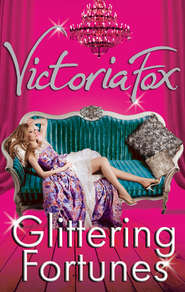По всем вопросам обращайтесь на: info@litportal.ru
(©) 2003-2024.
✖
The Silent Fountain
Настройки чтения
Размер шрифта
Высота строк
Поля
Had I really been the mistress who waits, hands wringing, for a break-up?
Divorce was impossible, he promised. He was an important man, and his wife was Grace Calloway, a well-known TV personality. I was taken in by the glamour – my life had been anything but glamour up to that point. How beautiful she was, how celebrated, and yet he chose to spend his nights with me. It’s fake, he told me, none of it’s real. I clung to that. He needed me. I kept him going. Kept him sane.
The nights without him were the worst. I’d lie in bed, picturing him in a home that didn’t welcome him, his wife away with her lover, his children refusing to let him close. It was easier to imagine than the alternative. That maybe they had made up; maybe she had cooked him a meal (saltimbocca, his favourite) and they’d shared a bottle of Chianti (like the one we had in that cosy Italian under London Bridge on my birthday, where the bottles came in cork baskets with molten wax down their sides), and then she’d told him she wanted to try again. The children were what got him. He could never turn his back on them, nor should he even think of it.
I erase what I’ve written. This is what I mean to say:
Right in that moment before she died, James, she looked at me and I knew. I knew that she loved you. I knew that you were never estranged and that you were happy – at least as far as she was concerned. She was a fragile, injured woman, a wife and a mother, and I had done a terrible, terrible thing.
I wish you would talk to me. I wish you would call. I wish you would tell me that I’m wrong about all this. You loved me then and you love me now and you didn’t lie to me.
Where are you? I cannot do this alone.
Someone is watching. Someone is here.
What should I tell them? What should I say? How can I know, if you won’t talk to me?
Bill’s words fly back at me. Do you think he’s going to defend you? He doesn’t care. He’ll put it all on you and then how’s it going to look?
I can’t believe that – but what, then, am I supposed to draw from his silence? I have no idea how he’s coping. The funeral is over, the daytime-TV world moving on from their mourning, her Chic Chef’s corner deserted, soon to be replaced with some other voluptuous, cocoa-fondant-loving beauty, and now the questions are being asked. Grace Calloway committed suicide? Why? What possible reason could she have had to take her own life? Grace had everything: the perfect job, the perfect family and the perfect husband. There’s nothing like perfection to whet the appetite of the press. Scratch the surface, just a scratch; see what’s lurking beneath…
It wouldn’t have taken much. A bit of digging, the media turning up at his workplace, a snake-like Natasha disclosing everything to a reporter over a number of cocktails, realising next morning she’d perhaps said too much but not really caring.
I close my account, without sending the message. Tears prick my eyes, the uselessness of the whole thing; my utter lack of clarity as to what to do next. For a second, I consider ringing one of my sisters, but the thought of explaining it makes me weary. They wouldn’t understand. They couldn’t compute an impulsive Lucy. All their lives I’ve been the one who imposed rules and told off and packed lunches and burned toast, while they pushed boundaries and rebelled against an anger and sadness they couldn’t articulate. It was always their personalities that were entertained, their quirks and mischief and instincts, not mine. I was functional; I just got on with it.
Looking back, it might not be that my sisters overrode a more complex me; it might be that a more complex me simply had not existed. I buried her when I was fifteen and Mum was carried out of our house in the middle of the night, the life pinched out of her like a candle between two fingers. It was only when I met James that I set her free, the girl who had been caught and put in a jar, the lid screwed tight.
But I kept that girl to myself. She was my secret. And to my family I remained the trustworthy person they had always known.
They’ll find out soon enough.
I leave the booth, sling my bag over my shoulder and take the steps two at a time. Out on the street, the warm evening hits me like a fan. Suddenly, I’m dizzy. I cling to the wall, tiny pinpricks of light shimmering behind my eyes.
There is a café next door. I stumble in, ask for water, and sit in the cool of the air-conditioning, beneath an age-stained photograph of Michelangelo’s David.
I’m beginning to calm when I notice something. There is a man at the table opposite mine, a little older than me, watching me intently. It’s him.
The same man I saw outside the library last time.
Get up. Get out. Move.
The man stands. He approaches slowly, tucking his phone into his jeans, casually finishing his drink, and for an optimistic moment I expect him to walk right out of there, proving me wrong, but then his eyes are on me again and like a bad dream he closes the distance, stopping at my table, his hands in his pockets.
I pretend he isn’t there. When he pulls out a chair and sits down, I am forced to acknowledge him. He leans forward, his voice barely more than a whisper.
‘My name is Max,’ he says. ‘We need to talk.’
CHAPTER THIRTEEN (#ulink_699059a3-0cb6-5bf6-91b3-236175255260)
Vivien swallows the pills with relish. The green ones are her favourite; they can knock her out for hours. All she wants right now is to be knocked out.
Every time she closes her eyes, she can see the girl’s face. Up close, the resemblance is uncanny, and what she hoped was a mistaken similitude, a trick of distance or light, is exposed as fact. They could be sisters. The girl is the spitting image. I thought you were gone from my life, she thinks. I thought we were through.
Adalina closes the curtains. ‘You will sleep now, signora?’
Vivien can sense the pills start to take effect, a drowsy, rocking motion like being on the swell of the sea. In the early days she would fight it, begrudging how it robbed her of control. Now, she surrenders, lets it claim her, oblivion.
‘Find him, Adalina…’ she whispers, as she tumbles towards sleep.
‘Shh…’ The maid sponges her forehead.
‘I have to see him again,’ murmurs Vivien. ‘Let him know I’m…’
‘Quiet now, signora, go to sleep.’
‘Find him for me, Adalina. Before it’s too late.’
‘Calm now, signora, that’s it, there now, calm…’
‘You must find him… Promise me you’ll find him…’
Against her delirium, Adalina’s face morphs and swells and at points ceases to be there at all. Vivien is aware of a sponge crossing her brow, or is it her own hand, her own skin, hot and damp and cloying? She hears the maid exhale, or perhaps it is herself, on the cusp of sleep, falling, dreaming… Quietly, Adalina leaves the room.
CHAPTER FOURTEEN (#ulink_254a7ffc-b64d-5847-a60b-546241a606a2)
Vivien, Los Angeles, 1978
‘Ms Lockhart?’
The voice came at her from the sky.
‘Vivien…?’
It was closer now. Warm. Kind. It seemed to hold a hand out to her, and in the darkness behind her closed eyes she travelled towards it, her senses awakening one by one. Where am I? White walls, a smell of disinfectant and the low hum of conversation – then the sound of a curtain being pulled. The voice, where had it gone? She needed to hear it again. It was like water, quenching an ancient thirst.
‘Ms Lockhart, my name is Dr Moretti…’
She blinked, drawing the vision into focus. A man. His voice was deep and rich, with a gentle European accent. He was handsome beyond measure. Dark hair, wild and dangerous, falling to the collar of his doctor’s coat; the glimpse of an earring, a single dark cross. One of his eyes was black and the other was green.
He was a different breed to the men she was used to. He looked like a prince who had lived for a thousand years and never aged a day. His skin was marble, lightly tanned by the LA sun but harbouring the deep, permanent colour of foreign blood. She imagined him living in a forest, surrounded by sky and leaves.
It wasn’t the first thing patients typically thought when (as Vivien later learned) they first emerged from a week-long coma. But she couldn’t help it.
‘You might feel confused for a while,’ said Dr Moretti, slipping his board into the slot at the end of her bed. ‘Your memory will take a while to come back. You’ve been through a trauma, Vivien – you must be good to yourself.’ He spoke this last part with affection, and while Vivien’s pride told her not to fall for it, to keep her walls as strong and high as they had ever been, she wanted dreadfully to trust him.
Her memory, though, seemed fine. While the exact circumstances that had brought her here were misty – the strained call with Aunt Celia, the empty bottles of gin scattered over her dresser, that blind stumble to the car and the gunning of the engine – she was remembering acutely the pain and heartache she’d felt that night, the utter despair. Except all that seemed a distant shadow now, now that he was standing in front of her, this beautiful man with the strange-coloured eyes and the earring that made him look like a pirate. Her pain alleviated, as if she wasn’t only waking from a deep sleep but also from her old, outdated life. Gilbert Lockhart had used to talk about rebirth. Baptism. Emerging from the water and into fresh air, beginning again.
‘I’ll leave you to rest,’ said Dr Moretti, drawing the curtain back. Vivien wanted to speak but no words came, though whether this was a physical non-starter or a state of being tongue-tied she didn’t know. ‘Forgive the nurses if they get excited,’ he said before leaving, with a sideways smile that thawed the hardest, furthest part inside her that no one on earth had touched before. ‘It’s not usual for us to care for somebody famous. But the good news is, Vivien, you’re going to be absolutely fine.’











